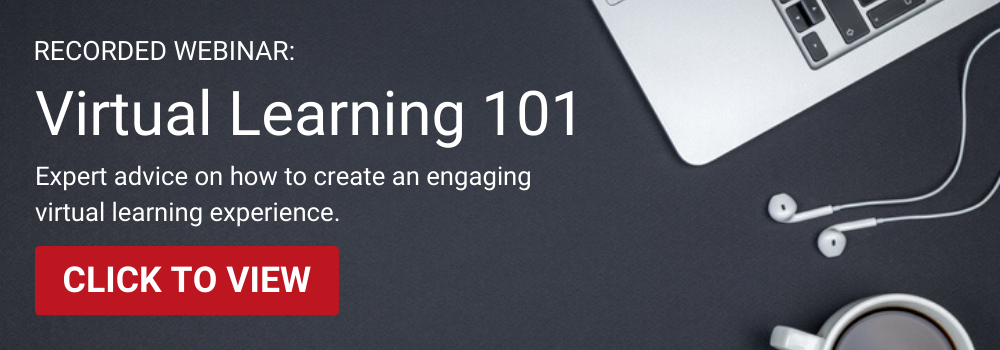Managing a Remote Team During Uncertain Times
Part 3: Work on Your Mentoring Skills
Professional support provided to a remote workforce during uncertain times can take many different forms. Ultimately, the goal is to maintain a degree of normality while simultaneously creating a productive working environment. While there will be natural distractions, worries, and plenty of questions, once all employees are comfortable and safe, the role of the manager is to keep the show on the road.
This article is the final and third edition in this series. In our last post, we explained how a manager can promote this time as an opportunity to learn and develop professionally, while the first article in this series examined how a manager can help optimize the work-from-home processes of their team.
Work on Your Mentoring Skills
While this is an opportunity for your team to plug skill gaps, as a manager you can also take this time to sharpen other areas of your job such as mentoring.
Many of your team will see you as a mentor and will be looking to you for guidance during this uncertain time. It’s more challenging to mentor a remote team than one which you meet face-to-face at the office. This considered, it should be treated as a skill and one that can be difficult to master.
Three mentoring skills you can develop and implement are brainstorming sessions, performance reviews and one-to-one check-ins.
1 Career Brainstorming sessions
Why?
Career brainstorming sessions are engaging, productive and creative ways of mentoring. They involve discussing innovative ways of changing an employee’s role for the better. During times of uncertainty, people may have fears around the future of their jobs, the company or even the industry. Brainstorming sessions around career changes can ease these anxieties and provide renewed focus to a mentee.
How?
There are several brainstorming techniques you can call upon. Some of the more popular methods are:
- A SWOT Analysis
- The FIVE Whys
- Reverse thinking
- Mind Mapping
- Role Storming
Ask yourself:
To the people I mentor, what aspects of their career can I conduct a brainstorming session around? What brainstorming technique will I use?

2 Performance Appraisals
Why?
Remote workers can feel distanced and disconnected, therefore over-communicating is important. As part of this over-communication and related to mentorship are performance appraisals.
Employees need to know how they are performing. Understanding where they’re strong and weak professionally helps them focus on specific areas of their career they need to improve. It also allows them to understand what areas of their job they’re succeeding in.
How?
When conducting a performance appraisal, there are a couple of things to consider.
These are:
- Focus on appraising elements which contribute to employee and organizational goals
- Structure your topics for appraisal in a meaningful way (for example, by skill groups)
- Standardize the appraisal method across all employees to ensure a uniform process
- Conduct research on the employee’s performance before conducting the appraisal
Ask yourself:
Should I have a formal appraisal schedule in place for my team? If so, what should it look like? And how do I conduct this appraisal effectively?

3 One-to-one Check-Ins
Why?
Maintaining lines of communication with your team is important during a time of uncertainty. They need to know you, as a mentor, are there if they need you. It’s a time when they might have difficult questions about their role, the company, and the industry – they need to know you’re someone they can contact when needed and get answers to questions regarding their career that might be worrying them.
How?
One-on-one check-ins can be impactful when done correctly. When setting up one-to-one meetings, ensure you:
- Put time in their calendar if possible
- Have a plan of what you want to discuss
- Make the mentee the primary focus of the meeting
- But don’t shy away from sharing relevant stories from your own experience
- Decide on next actions (if any) to close out the meeting
Ask yourself:
What is my current ‘check-in’ process with my team? Can I make it any better? How?



